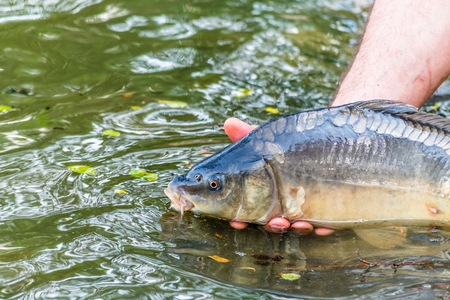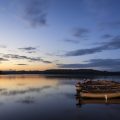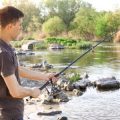Understanding Disabled Angling in the UK
Fishing is a cherished pastime across the United Kingdom, offering relaxation, social connection, and a chance to enjoy Britain’s scenic waterways. For disabled anglers, accessing these experiences can be challenging without proper facilities and support. Over recent decades, there has been significant progress in making fishing more inclusive, driven by both cultural values and legal requirements. The Equality Act 2010 plays a central role, mandating equal access and reasonable adjustments for disabled people in public spaces, including fishing venues. This legislation has encouraged fisheries, angling clubs, and local authorities to invest in accessible pegs, pathways, toilets, and parking. Inclusive access isn’t just about compliance; it reflects British values of fairness and community spirit. Enabling everyone to participate in angling strengthens social bonds and ensures that no one misses out on the physical and mental health benefits fishing brings. As more organisations embrace disabled-friendly design and attitudes, the UK continues to lead in creating welcoming environments where every angler can thrive.
2. Where to Search for Accessible Fishing Venues
Finding disabled friendly fishing locations in the United Kingdom is easier than ever thanks to a wide range of resources and community support. Here’s a step-by-step guide to help you discover the best spots that cater to your needs.
Use Online Resources Effectively
Several websites specialise in listing accessible fishing venues. These platforms often include detailed information about the facilities, such as wheelchair access, accessible toilets, car parking, and even onsite assistance. Here’s a quick comparison of the most popular online tools:
| Resource | Main Features | Website |
|---|---|---|
| FishPal | UK-wide searchable database, accessibility filters, venue details | fishpal.com |
| The Angling Trust | Lists member clubs and venues with accessible facilities, advice section | anglingtrust.net |
| Accessible Countryside for Everyone (ACE) | Dedicated to accessible outdoor activities including fishing | accessiblecountryside.org.uk |
Always check user reviews for up-to-date information on accessibility, as conditions can change over time.
Contact Local Angling Clubs
Joining or reaching out to angling clubs is one of the best ways to get first-hand recommendations. Many clubs across England, Scotland, Wales, and Northern Ireland are committed to inclusivity and can provide:
- Guided tours of their facilities before your visit
- Advice on the most suitable pegs for mobility aids
- Liaison with local members who have lived experience of disabled access challenges
You’ll often find club contact details through their websites or social media pages. Don’t hesitate to ask specific questions about ramps, pathways, or water access points.
Consult Your Local Council
Councils play an active role in promoting inclusive leisure opportunities. Many publish directories of accessible parks and nature reserves where fishing is permitted. You can:
- Visit your council’s official website and search “disabled fishing” or “accessible angling” within the leisure section
- Email or call the parks and recreation department for tailored advice
Pro Tip: Combine Resources for Best Results
The most successful anglers use a combination of these methods. For example, start with an online search, then confirm details by speaking directly with angling club representatives or council staff. This approach ensures you have the most accurate and up-to-date information before planning your trip.
![]()
3. Essential Facilities and Accessibility Features to Look For
When searching for disabled friendly fishing locations in the United Kingdom, its crucial to ensure the site meets specific accessibility standards. A well-equipped fishery or angling spot can make all the difference for a comfortable and enjoyable experience. Below is a practical checklist of essential facilities and features to look out for:
Wheelchair Access
Check if there are smooth, level pathways leading from the car park to the fishing pegs. Many modern UK fisheries now offer purpose-built paths that cater specifically for wheelchairs and mobility scooters, reducing uneven surfaces and potential hazards.
Adapted Fishing Pegs
Accessible fishing pegs are wider, stable platforms designed for wheelchair users. These pegs often have raised edges for safety and are positioned close to the water’s edge while maintaining adequate space for manoeuvring equipment. Ask if these pegs are available when booking your visit.
Accessible Toilets
Toilet facilities can make or break an outing. Look for locations that provide disabled-access toilets with grab rails, wide doors, emergency alarms, and enough turning space. These should be clearly signposted and maintained to high cleanliness standards.
Dedicated Parking Spaces
On-site parking is vital, especially if you have specialist mobility needs. Search for venues that offer dedicated disabled parking bays close to the fishing area and facilities, minimising travel distance over rough ground.
Staff Support and Assistance
Friendly, trained staff can provide invaluable help—whether it’s carrying tackle, offering advice on safe routes, or assisting with setting up equipment. Don’t hesitate to contact the fishery beforehand to discuss your requirements; many are happy to arrange personalised support in advance.
Quick Checklist Before You Go:
- Are there accessible paths from car park to waterside?
- Does the site offer adapted pegs or platforms?
- Are accessible toilets available and in good condition?
- Is there designated disabled parking near key areas?
- Can staff provide assistance if needed?
By prioritising these accessibility features, you’ll be better prepared to enjoy a stress-free day’s fishing at some of the UK’s most inclusive angling spots.
4. Connecting with Disabled Anglers’ Communities
One of the most rewarding ways to find and enjoy disabled friendly fishing locations across the UK is by getting involved with communities dedicated to accessible angling. These groups not only provide first-hand advice and recommendations, but also offer camaraderie and support from people who truly understand your needs.
Advice on Joining Local Groups
Many regions in the UK have local angling clubs that either focus on or actively include disabled anglers. Joining these groups can give you access to insider knowledge about suitable venues, upcoming events, and even organised trips with accessible transport. Most clubs are happy to welcome new members and will help tailor experiences to your requirements. Start by searching for “disabled fishing club [your area]” online or asking at your nearest tackle shop.
Online Forums and Social Media Communities
If you prefer digital connections or want a broader network, several forums and social media groups exist for disabled anglers. Here, members share reviews of fishing spots, practical tips on adaptive equipment, and stories from their outings. Engaging in these communities helps you stay updated on new accessible venues and changes at existing locations.
| Platform | Type | Focus | How to Join |
|---|---|---|---|
| The Angling Trust Forum | Online Forum | Accessible Fishing Advice & Events | Register on their website |
| Fishability UK Facebook Group | Facebook Group | Community Support & Venue Reviews | Request to join via Facebook |
| Disabled Anglers Network (DAN) | Organisation & Website | Campaiging & Resources for Accessible Angling | Sign up online or attend events |
| Your Local Council or Disability Sports Office | Local Service | Information on Clubs & Initiatives Nearby | Email or call for details |
Organisations Promoting Accessible Fishing in the UK
The UK is home to several national organisations dedicated to making angling accessible for everyone. These bodies offer guidance, grants for adaptive equipment, and run events specially tailored for disabled participants. Some key organisations include:
- The British Disabled Angling Association (BDAA): A leading charity providing venue assessments, coaching, and advocacy for accessible fishing.
- The Angling Trust: The national governing body supports inclusive fishing initiatives and maintains a directory of accessible fisheries.
- Fishability UK: A community group sharing resources, organising trips, and raising awareness about adaptive angling opportunities.
Tapping into First-Hand Experiences
When connecting with these communities—either in person or online—don’t hesitate to ask questions about specific venues or share your own experiences. Many anglers are keen to help others navigate challenges such as parking, paths to pegs, toilet facilities, and the best kit for particular disabilities. By participating actively, you’ll both benefit from—and contribute to—a growing network that makes fishing more enjoyable and accessible for all.
5. Top Tips for an Enjoyable and Safe Fishing Experience
Plan Your Trip Thoroughly
Before heading out, research your chosen disabled-friendly fishing location in detail. Contact the venue to confirm accessibility features such as ramps, accessible toilets, and designated parking spaces. Its wise to book in advance, especially during peak seasons or if you require specific assistance on arrival. Many British fisheries are happy to provide extra support with a little notice.
Adapt Your Equipment for Comfort and Accessibility
Investing in adapted fishing equipment can make your experience smoother and more enjoyable. Consider lightweight rods, easy-grip handles, and electric reels if you have limited mobility or grip strength. A stable, wheelchair-accessible fishing platform is ideal for comfort and safety. Don’t forget a portable seat cushion or supportive chair designed for outdoor use.
Prepare for the Unpredictable British Weather
The UK weather is famously changeable. Always check the forecast before your trip and pack accordingly—waterproof clothing, layered outfits, a sturdy umbrella or shelter, and a hat for both sun and rain are essentials. If you use a wheelchair or mobility aid, bring covers to protect them from mud and moisture. Thermos flasks with hot drinks are a British staple for chilly days by the water.
Stay Comfortable Throughout Your Visit
Comfort is key to enjoying your day. Bring plenty of snacks, bottled water, any necessary medications, and sun cream—even on cloudy days. A small first-aid kit can be helpful. Many UK fisheries have on-site cafés or shops; check their accessibility in advance if you plan to use them. Most importantly, fish at your own pace—British angling culture values relaxation as much as catching fish!
Real-World Tip:
If possible, visit the site beforehand or ask for photos of access points and facilities so there are no surprises on the day. Connecting with local disabled anglers’ clubs can also provide invaluable insider advice specific to UK locations.
UK Organisations and Resources for Further Support
Finding accessible fishing spots is just the beginning—knowing where to turn for advice, assistance, and community makes the journey even more enjoyable. The UK boasts a strong network of charities, helplines, and official websites dedicated to supporting disabled anglers. Here’s a breakdown of key resources and what they offer:
Angling Trust
The Angling Trust is the national governing body for angling in England. They provide extensive guidance on accessible fishing venues, promote inclusive events, and campaign for improved facilities. Their website features directories and advice specifically tailored to disabled anglers.
British Disabled Angling Association (BDAA)
The BDAA is a leading charity working to make fishing accessible to all. They offer:
- Venue Accreditation: Detailed lists of verified disabled-friendly fisheries across the UK.
- Advice Helpline: Personalised support to help you plan your trip or access adaptive equipment.
- Educational Workshops: Training sessions for clubs and fisheries to improve accessibility standards.
Fish Legal
This organisation offers legal advice and support if you encounter discrimination or access barriers at UK fishing venues. Fish Legal also works with local authorities to ensure public waters remain open and inclusive.
Local Authority Services
Councils often maintain lists of accessible parks, lakes, and rivers suitable for fishing. Their disability services teams can point you towards local groups or adaptive sports initiatives—always worth checking your council website or giving them a call.
RNIB and Sense
If you have specific sensory impairments, charities like RNIB (Royal National Institute of Blind People) and Sense (for people with complex disabilities) can advise on specialist equipment and connect you with trained volunteers for supported fishing outings.
Online Communities and Forums
Websites such as Disabled Anglers Forum provide peer-to-peer advice, reviews of accessible venues, and real-life tips from fellow disabled anglers across the UK.
Why Use These Resources?
Tapping into these organisations means not only finding new places to fish but also joining a supportive network that understands your needs. Whether you need technical advice, legal support, or simply want to share your latest catch with like-minded people, these resources will help you fish with confidence anywhere in the United Kingdom.


